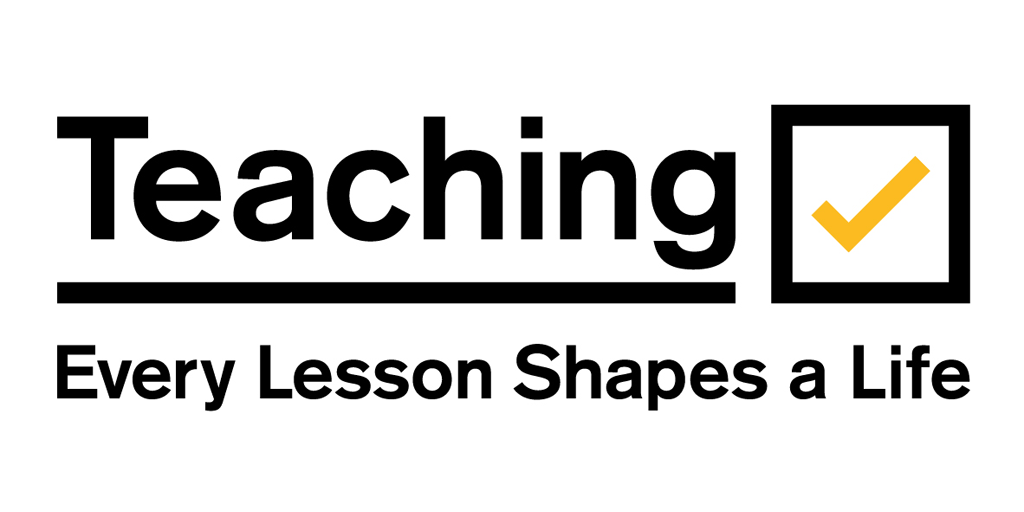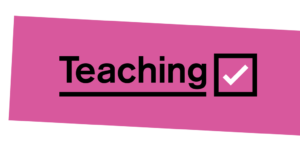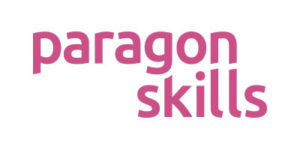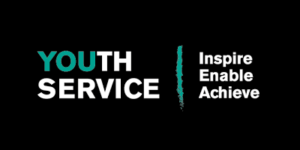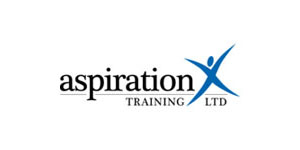Teaching Assistant careers guide and job profile
Life is a learning process, and for some lucky children out there, their process could start with someone smart and caring like you.
Getting into Teaching Assistant careers
You’ll find teaching assistants in all stages and types of education in the UK. You could be working in:
- Nursery and primary schools (this is most likely)
- Special schools
- Secondary or independent schools and academies
How much money can you earn as a Teaching Assistant?
These LMI Job Trends give you a sneak peek of how much you could earn starting out for this career, and how much your salary could grow with experience.
Average salary for teaching jobs
Recent labour market information says you can earn on average between £16,000 and £50,000 a year as a Teaching Assistant in the UK.
Your starting salary can vary because of factors like level of experience, training, location or the size of the company. Your salary as a Teaching Assistant will increase over time as you build skills, knowledge, and experience.
Childcare & Education Career FAQs & Insights

Is there something you’d like to know about childcare & education careers?
Skills you need to become a Teaching Assistant
Useful skills to put in your CV:
- Excellent communication skills (you’ll need to be able to build good relationships with children, parents and other teachers, and you may help with assemblies, clubs and events)
- Organisational and planning skills (known as self-management skills) because no-one expects someone in a teaching position to be disorganised!
- Teamwork skills to take instruction from the teachers you are supporting and fit into the classroom culture in a positive way
- Creativity to help you design activities that are fun, inspirational and educational
- A cool, calm head to manage children and cope with any challenging behaviour
- Sensitivity and understanding (learning can be hard for some more than others, and you’ll need to build their self-belief)
- IT skills (many schools now use software and digital tools for registers, accessing resources, and showing visual learning materials on a smart board)
Top Skills-boosting Tip
Use every opportunity to practise teaching others, whatever age they are. Help younger family members with their homework and projects, help your friends with studying, or teach anyone you know something new you find interesting. People have different ways they learn best, and you’ll build your ability to communicate, present and adapt with their different needs.
How Do You Get These Skills?
Vocational qualifications and work experience will help you build these skills over time.

Build Your Skills With the FREE Young Professional Programme
What Qualifications & Training Do You Need For Teaching Careers?
School, college and training
Your CV can really shine if you have extra qualifications in childcare or youth work, and you will usually also need experience of working with children.
The ability to speak another language (that isn’t English) could be helpful as many teaching assistants work with pupils whose first language isn’t English. Languages can include British Sign Language. Speaking another language isn’t essential but can provide more opportunities so it’s something to consider studying.
You will also need clearance from the Disclosure and Barring Service (DBS) to prove you are safe to work with children and safeguard them.
You could take a college qualification to get started, for example:
- Level 2 or 3 Certificate in Supporting Teaching and Learning in Schools
- Level 3 Diploma in Childcare and Education
You may need:
- 2 or more GCSEs at grades 9 to 3 (A* to D), or equivalent, for a level 2 course
- 4 or 5 GCSEs at grades 9 to 4 (A* to C), or equivalent, for a level 3 course
BTECs
As an alternative to A-Levels, you can do BTECs from the age of 16. There are a number of BTEC subjects you might want to consider if you are interested in becoming a primary school teacher.
- Level 3 Award in Education and Training
- Level 4 Certificate in Education and Training
You’ll normally need 2 or more GCSEs at grades 9-3 (A*-D) or equivalent for a Level 2 or 3 course. If your qualifications are lower than this, you’ll most likely start on a Level 1 course.
A-Levels
A Levels are academic qualifications that come after GCSEs. A Levels can be an ideal stepping stone to an advanced apprenticeship, a degree, a job, or going straight into a freelance career.
You’ll normally need GCSEs at grade 4 (C) or above in English and Maths (and science if you want to help teach in primary as this is a core subject, but it is not essential).
You can do any subjects that are relevant, but the core subjects like Maths, English and Science will be especially useful.
2 to 3 relevant A levels, or equivalent, are usually required to complete a degree.
University degrees and graduates
Although you don’t need a degree to become a teaching assistant, having one can be an advantage as it shows you have the right knowledge and skills for a career in teaching.
Degrees surrounding education would be useful, including psychology which may be useful for working with children.
Teaching assistants aren’t required to have a Qualified Teaching Status (QTS) like teachers are, but it’s something to consider working towards if you want to progress into a teaching role after being a teaching assistant. You can get QTS through undergraduate or postgraduate teacher training.
UCAS has more information on degree courses and entry requirements.
Apprenticeships
An apprenticeship is a scheme where you train while earning a starting salary. With an apprenticeship (or advanced apprenticeship) you’ll have a paid job with an employer that includes structured training and learning. This training leads to an official qualification that’s recognised by employers as an industry standard.
You could do the Teaching Assistant Level 3 Advanced Apprenticeship to become a teaching assistant.
Anyone over 16 can study for an apprenticeship. You will normally need at least 5 GCSEs at grades 4-9 (A*-C) to study for an apprenticeship, including English and Maths.
Similar roles you can find apprenticeships for are behaviour support assistant or co-ordinator, pastoral/welfare support assistant and bilingual support assistant.
T-Levels
T-Levels are a choice for learners after GCSEs alongside apprenticeships and A-levels.
T Levels, an alternative to A-Levels, are qualifications in vocational, technical and hands-on subjects that you can choose to do after GCSEs instead of traditional academic qualifications.
They include a mixture of classroom-based learning and industry placements where you can put your new skills into practice in real-world scenarios.
A T-Level in Education and Early Years could be a good choice for a prospective teaching assistant.
You may need 4 or 5 GCSEs at grades 9 to 4 (A* to C), or equivalent, including English and maths for T Levels.
Career Progression
Where your career could take you…
To develop your knowledge and experience and progress, you could take a Level 4 course to become a Higher Level Teaching Assistant (HLTA).
With further study you could become a fully qualified teacher. You can explore routes into teaching with Get Into Teaching.
Get Into Teaching
Your favourite teacher started exactly where you are now. You are more of a teacher than you think!
What Work Experience Do You Need For Teaching Jobs?
Work Experience Tips
It can help you decide if this is the right career for you if you have previously done work experience in a teaching environment, especially around younger children. Work experience in an early years education environment can also help you build useful skills.
Examples of relevant work experience include:
- Work shadowing (even if it’s just for a day)
- Work placements in a company
- Work experience placements on a college or university course
Your application for this role is more likely to be successful if you already have experience of working with children and young people. As well as gaining work experience through childminding and similar roles, you could explore summer jobs where you might work with younger/older children, such as crewing at a holiday camp.
When applying for jobs, you’ll need to show that you can work well with children, teachers and parents through some kind of life or work experience. A qualification in nursery work, childcare, playwork or youth work will give you an advantage.
Volunteering Tips
Volunteering is a fantastic way to gain experience of working with children, as so many volunteering opportunities can involve early youth community work. When you volunteer with children you’ll need to get a DBS check to prove you can safeguard children appropriately. You’ll find it helpful to get some experience of working with children as it will give you an advantage when applying for jobs, though this is not essential.
You could volunteer at a school, help at an after school club or work on a holiday scheme. Check with local schools in your area for opportunities. Volunteering can also sometimes lead to paid work or a chance to get a qualification.
Career Tip
Many teaching assistants specialise in the kind of extra help they give, for example:
- languages
- behavioural
- pastoral
- special needs support
What Does A Teaching Assistant Do?
Your activities might vary if you’re working in a nursery, primary school, or secondary school. If you’re working in a secondary school, you will most often be working as a special needs assistant.
You may work full-time during regular school hours in term time. You may also work part-time, like many teaching assistants.
Example daily job responsibilities in a secondary school:
- Some responsibilities for assisting with special needs in secondary schools include:
- Accompanying students around a school
- Taking notes for students in lessons
- Helping to carry equipment, books and bags
- Working with individuals or small groups of pupils
Example daily job responsibilities in a nursery or primary school:
- Getting things ready for lessons, e.g. setting up equipment
- Reading to children or listening to them read
- Playing counting games or teaching times tables to help children with numbers
- Helping with arts and crafts activities and displaying children’s work
- Supervising playtime and dining areas
- Escorting children on outings, special events (like sports events) and between classes
- Helping children with coordination activities like holding pencils or tying shoelaces
- Supporting the teacher in keeping up-to-date and accurate records
- Acting as a liaison with children, parents, carers, and other professionals
How To Find Teaching Assistant Jobs: Next Steps
To find jobs for young people in this role, search on jobs boards for early career roles and opportunities with keywords such as:
- Teaching assistant apprentice
- Classroom assistant
- Learning support assistant
You can take a look at our database of local opportunities to see if there are any relevant jobs, work placements, or careers events and workshops to help you get started. Create Your Future!
Schools can be owned by private organisations or by local government, so many local councils recruit for teaching assistants for schools in the county themselves.
You can use the government website to find education and teaching opportunities near you.
The Department for Education also provide information on the many routes you could take and hold events across the UK so that you can talk to those who work in education or training providers. It’s a great opportunity to explore the ways you can get a job in teaching careers.
Get Into Teaching Careers With Youth-Friendly Employers
These employers and organisations are here to help. They care about your potential and desire to learn, not just your qualifications and experience. They may be able to offer traineeships, apprenticeships, graduate schemes, first jobs, careers advice, wellbeing support and much more.
Childcare & Education Career Tips & Opportunities
Childcare & Education Career Guides
View job descriptions with average UK salary, useful qualifications and a variety of routes into this career.
See All Our Youth-Friendly Employers

























YES! I Want More Free Careers Help...
So what are you waiting for? Grab your future.


